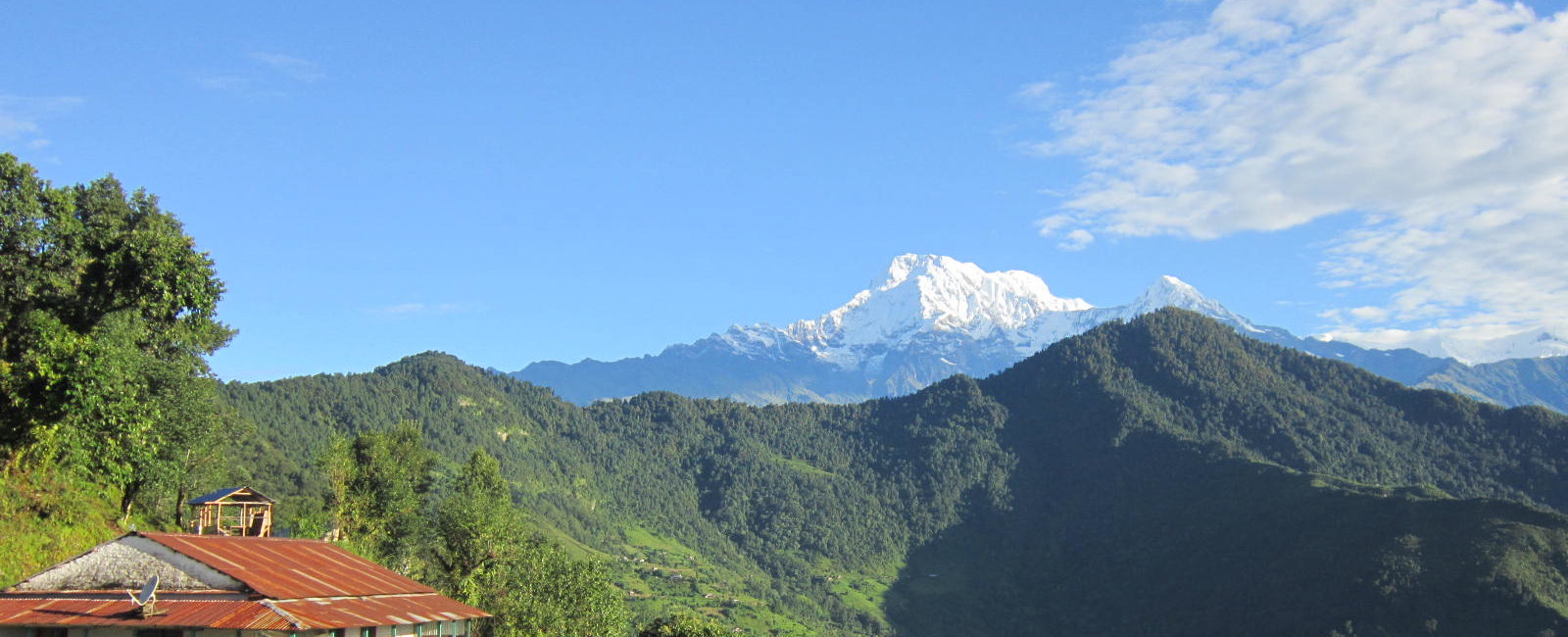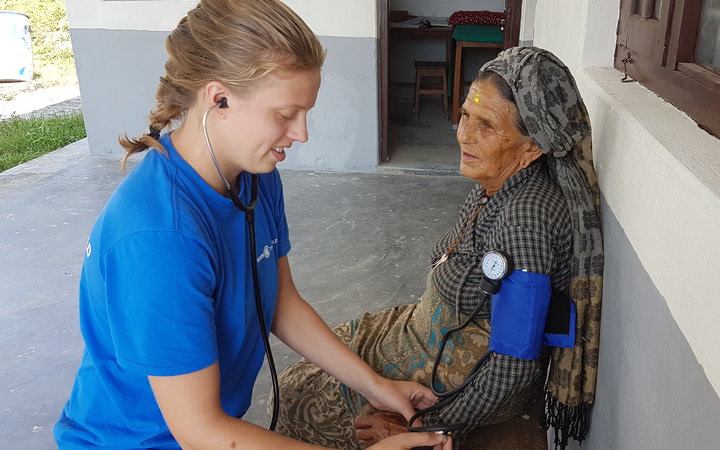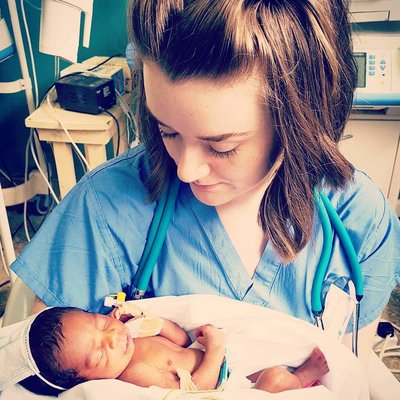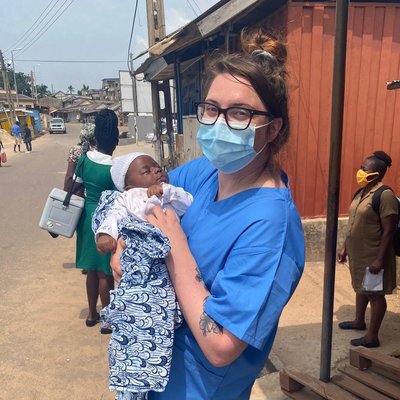Indy is a qualified dentist with a thriving practice in Essex. In 2014, she travelled to Nepal and had what she describes as a life-changing experience.
We caught up with Indy to see what she was up to now and how her elective in Nepal helped get her where she is today.
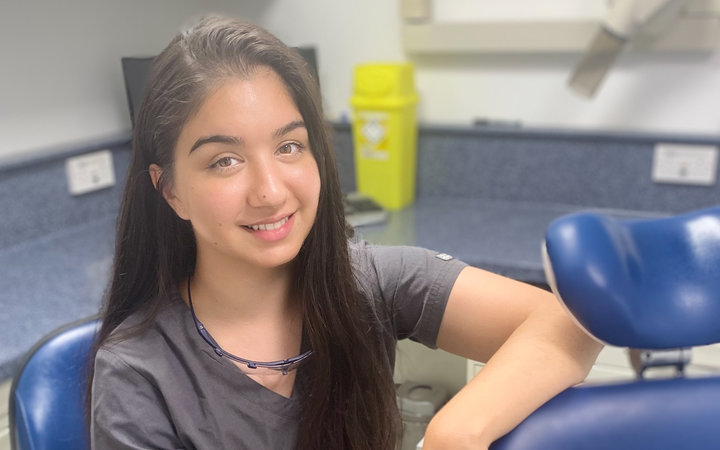
So, what got you into dentistry?
I had always wanted to do something within the sciences. My family has no medics or dentists, so it was a bit out of the blue.
I enjoyed art and science, so I wanted something that amalgamated the two together. I found that dentistry, through doing work experience and shadowing other dentists, was a career I wanted to pursue.
Dentists worked with their hands, and it was surprisingly creative. I saw it as an art form mixed with biology.
But the main draw for me was positively impacting someone’s life. That ‘wow’ factor patients have when they see their improved smile for the first time. I remember, as a teenager, my teeth were quite crooked. I was pretty self-conscious, and I never smiled in photos.
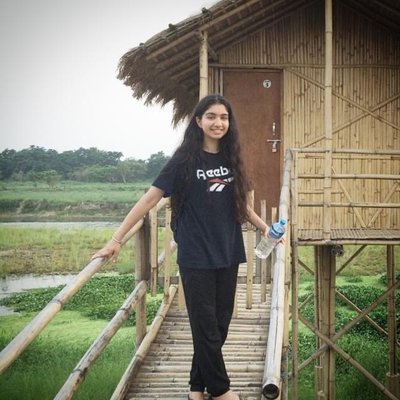 After I had braces, I felt a big boost of confidence. I wanted to give this feeling to other people, to make them smile too.
After I had braces, I felt a big boost of confidence. I wanted to give this feeling to other people, to make them smile too.
When you’ve experienced something yourself, you can relate to others in the same situation.
And what was it that prompted you to choose Leeds as a university?
To give you some background, I’m from a rough area in East London. I went to a state school where few people were interested in dentistry or anything like that.
During my final year of A-levels, I applied for dentistry and had an interview. Unfortunately, I was unsuccessful, and my lack of interview skills showed. I got the grades but didn't get into dental school the first time.
I took a gap year to reapply for dentistry while working in a pharmacy. I was accepted to the University of Leeds the following year and am grateful.
I’m homely, and I never thought I’d leave London, but I couldn’t pass up the opportunity. I ended up loving the Leeds campus. I think it’s one of the biggest campuses in England, and it’s all on one site.
The skills suite's simulation technology was new, and the clinics were well-equipped, so I knew I would gain lots of experience.
It was an incredible journey.
So, how did your elective fit into all that?
It was between my fourth and fifth year, so 2014.
Dental undergraduates at Leeds didn’t need to do an elective. However, my best mate and I knew we wanted to do something. Someone at the uni advised us about Work the World because other Leeds undergrads had travelled with you in previous years.
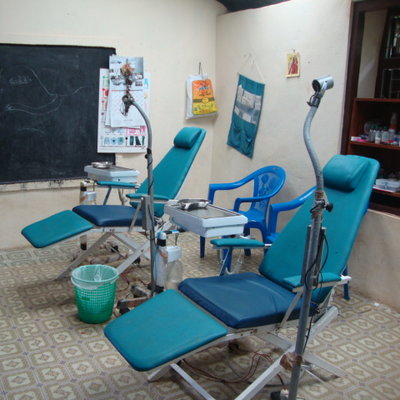 When we did our research, we saw you were well-established.
When we did our research, we saw you were well-established.
That was important to us because we were just two girls, and we wanted to feel safe in what we were doing—we wanted that reassurance.
Leeds let us do an extra module where we wrote a reflective report on our overseas experiences with you.
So, then you got in touch with us and spoke to our team. How did you decide to go to Nepal?
We just loved the sound of it!
Did you take that fantastic Yeti Airlines propeller plane ride from Kathmandu to Pokhara?
We did. It was a tiny plane, and we could hear the propellers. It was the longest 30 minutes of my life, but you could see the mountains from the window, and it was all part of the fun.

What was that first impression, and then the first 24 hours in this new place?
It was amazing. I remember getting there and heading to the house with the person from Work the World who picked us up from the airport.
When we got there, we met our housemates. They were from all over the world: American medical students, nursing students, and physiotherapy students. We made good friends with an undergraduate pharmacist from Ireland.
We all gelled quickly because we knew what we’d gone there for and were ready to have a good time.
I loved the house we stayed in. The food was always excellent, and the catering team was really good. We also felt secure.
What was it like living with all those other people from different disciplines throughout the trip?
We learned so much. It wasn’t just that they were from different disciplines—it was also that they were from different countries.
The Americans were brilliant. We chatted with them about all the different British cultural stereotypes!
In terms of different professions, it was interesting to hear how they practised in their home countries.
I guess you also heard lots about people’s actual hospital placements while they were in Nepal. At the end of the day, you all get back together to discuss your experiences.
We used to take a bus from the hospital back to the house, so we caught up about our days then and when we all got together over dinner.
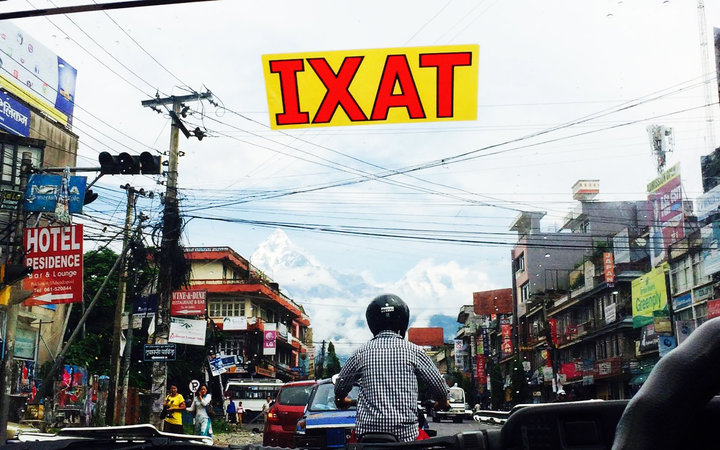
In the hospital itself, we were in the dental unit, but we used to go down to the pharmacy area and catch up with other students who were down there. We all had completely different experiences, and it was interesting to hear about them from all the different perspectives in the house.
We might as well talk more about the hospital, seeing we’re on the topic. You will have had your city orientation and hospital orientation before starting your placement. What was it like when you first walked into the hospital?
When we went to the hospital, one of the first things we noticed was that there weren’t many ambulances. People just drove there in their cars or arrived in taxis, even if it was an emergency.
Then, when we walked in, it was so big and vast. There were so many floors, and hustle and bustle were everywhere. It was a bit chaotic but totally expected. Before I travelled, Work the World gave me a good idea of what it would be like. Coming from an Indian background, I thought it would be similar to how things are in India, which it was. So, it wasn’t too much of a shock to the system.
But even so, seeing it for the first time and realising it was where I would be for the next couple of weeks was a ‘wow’ moment.
Then I remember we went to the dental ward and met the MaxFax surgeon. We couldn’t believe we had the opportunity to meet the consultant immediately.
That was a great start because he was the person who looked over the whole unit. Everyone was so friendly—all the dentists and supporting staff were lovely.
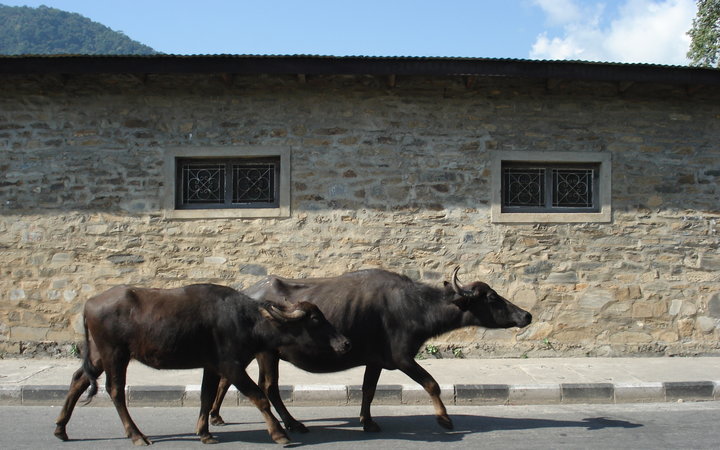
- Traffic means something completely different in Nepal -
Then how did it work day to day?
We saw a different branch of dentistry every day. One day, we’d see restorative dentistry — fillings, root canals, that sort of stuff. Then, another day, we’d be with the orthodontist — braces, moulds and that kind of thing. We also spent time with the MaxFax surgeon, seeing oral surgeries and more head and neck dentistry.
It was what I’d describe as textbook conditions. But I mean that in the sense that they were the kind of thing that you only saw in textbooks.
Don’t forget we did hospital placements while we were at uni, but we never saw anything like that.
It was amazing as an undergraduate to see these things in real life instead of just reading about it in a book. You can’t put a price on an experience like that.
Other big differences were the hygiene and sterilisation protocols and the layout of the rooms.
The way local dentists approached their work was a whole other learning curve. One patient came in with a big facial abscess, and the MaxFax surgeon was just so chilled throughout the whole procedure whilst draining it. He was carrying out life-saving treatment, but he was so confident in what he was doing.
It made me realise that I wanted to get to that level.
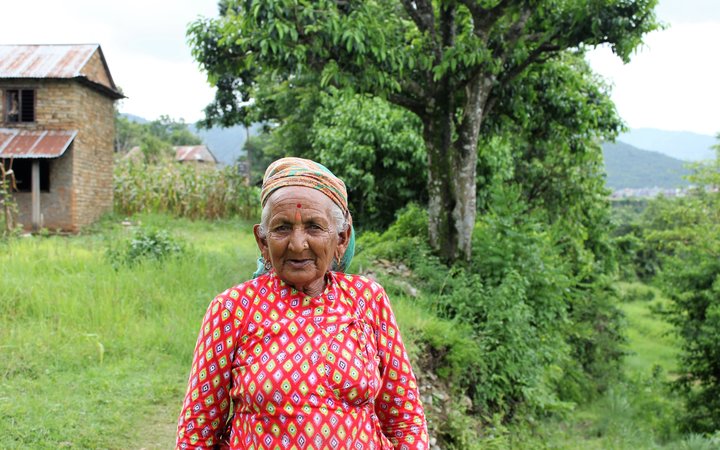
- Head into the mountains to see what village life is like -
I think there’s a lot of pride that goes into the work. I’m not clinically minded, but when I speak to students, the sense I get is that in countries like Nepal, patients are more appreciative of care because it’s that much harder to get.
Absolutely. There were a lot of striking differences in culture and society.
Another one was that local people saw local anaesthetic as a weakness. So, a lot of patients had treatments without any numbing.
In the UK, it’s a very different story. Most people here wouldn’t dream of undergoing a procedure without local anaesthetic.
And that’s the beauty of going somewhere like this — you get to see things you’d never see back home.
Exactly!
So, let’s chat about the Work the World staff in the house. What kind of involvement did they have in your day-to-day?
They were great because they weren’t overbearing. That’s what we liked about them — they just went with the flow and did what they needed to do when we needed them to do it.
And by the same token, they were never too laid back. It was just right for us. If we had any concerns, we knew who to turn to, and we never felt like we couldn’t ask a question, no matter how small we thought it was.
I don’t know if that’s because you guys go with the flow.
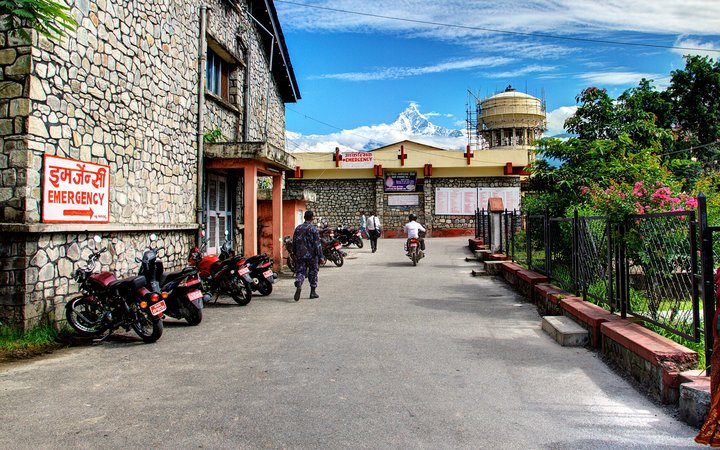
- Local hospitals aren't quite what you're used to! -
It’s definitely an intentional thing. Our overseas teams are excellent at assessing who needs what at the moment. If you need more support, they’ll be there for you. If you’re more confident and need more space, they’ll give it to you.
Honestly, all I have is positive feedback about your staff. I also wanted to do this interview because I would recommend it to anyone, and it’s not like it was compulsory. The whole experience was life-changing.
As an undergraduate between years four and five, you’ve learned most of what there is to learn at that level of dentistry. But, the trip overseas with Work the World pushed us to become more confident in ourselves and our skills.
I think it gives you a bit of an edge as well. When you have interviews, you’ve got it on your CV that you’ve done an elective overseas. It shows that you’re a bit of an adventurer, and employers like seeing that you have the drive to travel all the way to Nepal because of your passion for your discipline.
That’s right. It’s all about adding value to yourself in a space where there’s such fierce competition.
Also, you don't have time to do it when you get older and graduate. So, I would recommend doing it as an undergrad.
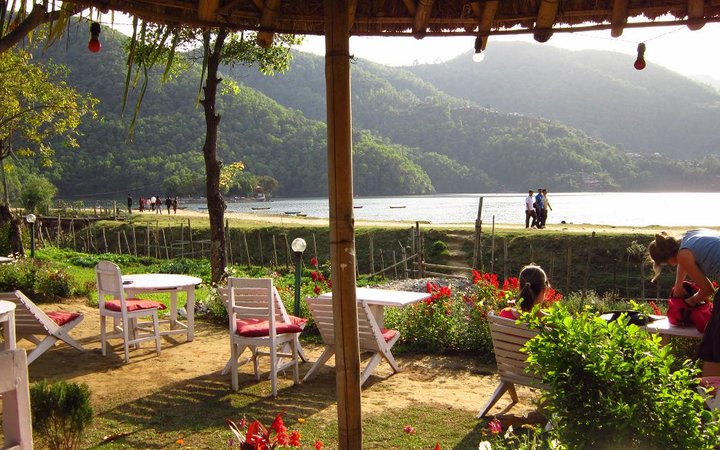
As you described it, you had this life-changing experience and then returned to the UK. Did your experience overseas change how you saw things when you got home?
100%. The biggest thing was how much I value the NHS. In Nepal, if you don’t have the money for treatment, you won’t get it, even if you need it to save your life. In the UK, there is no discrimination or treatment. I also had a greater appreciation for the standard of care in the UK.
I also feel like my nonverbal communication developed dramatically while I was there. Thanks to the Work the World lessons in the house, I could speak a little Nepali, but most of my communication with patients was nonverbal. I got better at maintaining an open stance and eye contact.
What happened after you graduated?
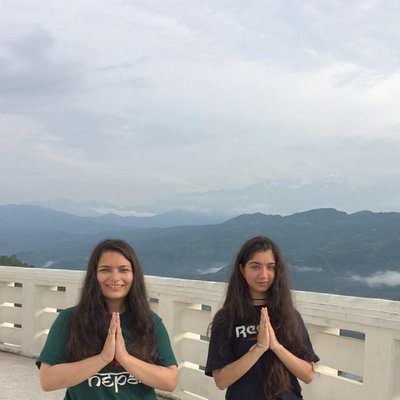 In 2015, I did what used to be called VT or Vocational Training. It’s called DFT (Dental Foundation Training) for everyone graduating now.
In 2015, I did what used to be called VT or Vocational Training. It’s called DFT (Dental Foundation Training) for everyone graduating now.
Once you graduate, you can work at an NHS practice where a dentist supervises you. If you complete that year of training, you get what’s called a performer number, allowing you to work for the NHS.
I spent that year in a dental practice in Basildon and got my performer number.
During that year, I also met my now husband, who was buying a private practice at the time. Since then, our clinic, Viva Dental Studio, has become well-established.
How has that gone for you?
It went well. We didn’t exactly start from scratch—it was a practice before, but there weren’t many patients. So, we rebranded it, changed the name, and it was reborn!
We built our patient list from there, mainly through referrals from people who received our services. Social media also helped a lot.
So, it has been a bit of a journey for you then!
It has! I’d do it all over again.
Discover more about our Electives in Asia. You'll find a range of unique destinations offering eye-opening clinical experiences and adventures.

START
YOUR JOURNEY
Want to go on a trip like Indy's? Choose your discipline below to get started!
Want to go on a trip like Indy's? Choose your discipline below to get started!
